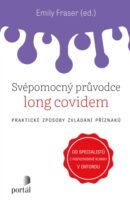In recent years we have seen major changes in the political landscape of Europe. Populist, nationalistic and separatist voices are being strengthened in many countries. In combination with the growing migration (both inside and outside the European Union), these phenomena become an important contemporary challenge for social services as well helping professions. Despite the dominance of migration issues in the social welfare discourse, relatively new phenomena are accompanied by well-known older ones that social work has been facing for a long time, such as the issue of older people or problems in the development of nongovernmental organizations.
Contemporary social work needs to be understood broadly, including (beside traditional fields of activity) preventive and educational activities at school, fundraising for non-governmental organizations, integrative action, especially in the intercultural context, etc. Methods used by social workers in these fields must also be differentiated: from care, through support, to various types of therapy. But regardless of the method, the participatory approach seems to become the general framework for the activities of helping professions.
This edition of the Journal of Czech and Slovak Social Work, which we have pleasure to publish, is engaging in most of these issues. Alice Reissová, Marta Žambochová and Markéta Vlčková in the article “Fundraising as an Opportunity for Non-profit Organisations – Possibilities and Limits of Individual Fundraising” are focused on different forms of willingness of individual donors who give donations. The Authors are interested which donation method is preferred and what are the socio-demographic characteristics of a regular donor. The findings of the research presented in the article might be found as interesting by practitioners who are working in NGOs, because some mistakes can be avoided in preparing an individual fundraising plan.
Anna Jarkiewicz the author of the article “Empowering Youth At-Risk in School Through Participatory Methods of Work Developed Within the FYS-Forums Project – Research Findings” is scrutinising deliberative capacities of young people. Her analysis, grounded in international research, is oriented onto reconstruction of attitudes and beliefs of youth. But, considering the participatory approach, a very important goal of the research is to increase the participation of youth in the decision-making process in as well as out of school. The research conclusions (but also the participatory method “Future Youth School Forum”) might be interesting for those who act to improve the potential of social inclusion of youth at risk in schools and to reduce the risk of dropping-out the school.
The question of engaging children in the decision-making process is also discussed by Monika Chrenková, Kateřina Cilečková and Alena Vaňharová in the contribution “The Participation of Minors in the Proceedings Regarding Their Upbringing and Maintenance”. The authors are analysing the process (and its conditions) of taking into consideration the child’s opinion in the legal proceedings that affect his/her future life. Some of the findings might be interpreted as alarming, because minors’ rights (even with low guarantees) are not always respected, and their participation is limited. Although the research is restricted to judiciary practice of two district courts in the Moravian-Silesian Region (Czech Republic), conclusions can be inspiring for practitioners working in the field of the social and legal protection of children all over Europe and even beyond.
The topic of conflict in family is also analysed by Iveta Bendulová and Beáta Balogová. The authors of the article “Solving Relationship Issues Through Sociotherapy” take a very important and interesting question of methods applicable in social work. The topic seems to be extremely important in the context of professionalisation of social work as well as development of its clinical variation. The authors, applying a case study, analyse the usability of cognitivebehavioural and task-oriented sociotherapy to solve family problems. The proposed method might be a useful tool of case work, specifically when conflict is a fundamental problem.
Ivana Kowaliková and Oldřich Chytil in their contribution titled “Analysis and Description of Availability and Sources of Social Support in Selected Difficult Situations for Seniors by Type of Their Household in the Czech Republic” are answering the question of social support for older people, especially those who are living in single-person households. The main empirical database of the research is the Czech Social Sciences Data Archive called Sociální sítě. The analysis can be an interesting source of knowledge for social scientists as well practitioners especially when compared to contemporary conditions of social services oriented to older people.
As mentioned at the beginning of the editorial introduction, migration seems to be one of the most important social issues of recent years. The phenomena are analysed in many different perspectives, yet we remain far from such level of explaining (understanding) the social consequences of migration to make possible organising successful support and integration. Two contributions in the current volume are focused on this topic:
Soňa Vávrová and Jitka Vaculíková in their article “Attitudes of the Czech Public Towards International Adoption of Minors” analyse the support for this kind of adoption of children from and in the Czech Republic. Authors of the contribution conducted quantitative research using a representative sample of 1050 adult citizens of the Czech Republic. A positive attitude of the public to international adoption might be an important indicator of the acceptance of ethnical, cultural and religious differences. Unfortunately, results of the research are not very optimistic, and most of Czech public don’t support international adoption.
The problem of migration and interculturality is also discussed by Roman Baláž and Lucia Čemová in the article “The Mainstreaming of Integration Governance and Social Work in the Local Integration of Immigrants”. The authors’ answer to the question of the role of social work in promotion of the integration governance at the local level. The analysis is a theoretical combination of migration study and social work perspective in the context of globalisation, interculturalism, and critical thinking. The authors also highlight the risk of negative phenomena such as institutional or state racism that might be produced by power structures (integration policy, social work practice, etc.).
Kvetoslava Repková in her article “Exploring Social Work in Area of Social Services in Slovakia – a Qualitative Study” reconstructs the triangle of the most important roles being taken by social workers in the framework of Slovakian social services. Considering the process of shifting in function that social work is undergoing, from care towards a systemic support of people in need to improve their standard of living, the triangle consists of diagnosing, social counselling, and coordination/mediation/ networking. The contribution by Kvetoslava Repková can be an interesting invitation to further European or international comparative studies.
Considering the question of care work, Vito Flaker, the author of the article “Breathing the Hierarchy of Needs Away” offers readers a critical inspiration to re-think some ideas often taken for granted. Using classic Maslow’s pyramid of needs and a breathing metaphor, Vito Flaker proposes to deconstruct the way “needs” are understood from a technical, universal, and aprioristic perspective towards a more individual one grounded in empirical recognition and empowerment of the provision recipients. The contribution can be significant framework for development of care work, postulated to be more subjective and even participatory. The volume’s last (but not least) parts are: “Research Note” and “Book Review”. Justin Jay Miller, Beáta Balogová and Zuzana Poklembová present their joint research project “The Global Self-Care Initiative: Exploring the SelfCare Practices of Social Workers in Slovakia”. Barbora Gřundělová very comprehensively and interestingly reviews the book by Paul Michael Garrett: Welfare Words: Critical Social Work and Social Policy.
I hope that this edition the Journal of Czech and Slovak Social Work will be found to be inspirational, interesting, and enjoyable.
Mariusz Granosik,
Department of Social Pedagogy,
University of Łódź, Poland,
issue editor






